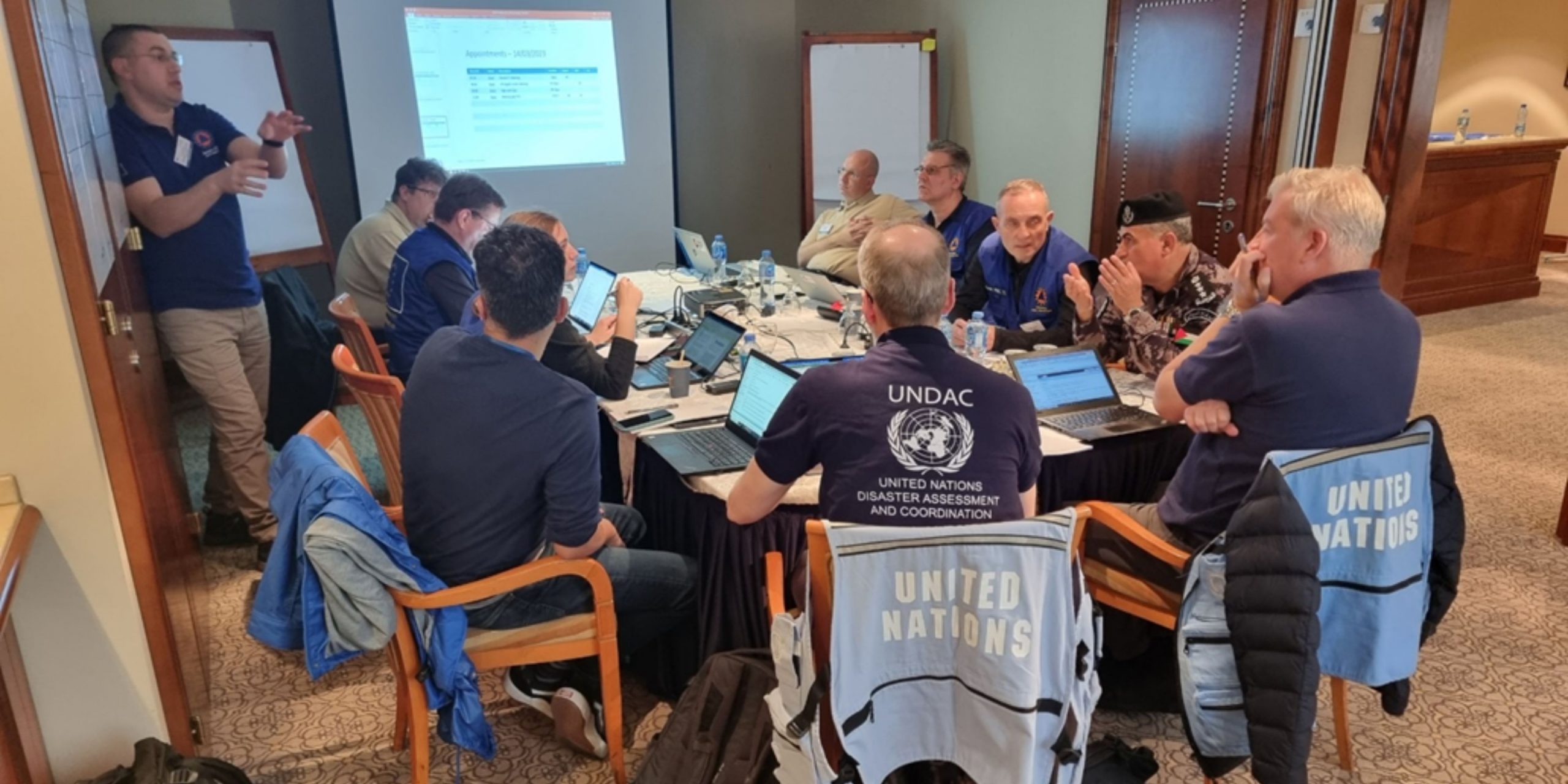PDEX (Professional Dialogue Exercise), a key project funded by the Directorate-General for European Civil Protection and Humanitarian Aid Operations (DG-ECHO) with the aim to strengthen disaster preparedness in the region was successfully completed. CERIDES – EUC was the coordinator of this important project which was the first ever large-scale PDEX – JIP project in the Middle East with dozens state actors from Jordan, Israel and Palestine.
The Lessons Learnt and Way Forward Meeting of PDEX took place between the 9th – 10th of May 2023 in Larnaca, Cyprus. It was co-organised by the Ministry of Foreign Affairs Cyprus and CERIDES – EUC.
Delegates from all three beneficiaries countries – the Jordanian delegation including the Brigadier General of the Jordanian Civil Defence, the Israeli delegation including the Head of Delegation-Director of strategic Cooperation Division of NEMA and the Palestinian delegation including the Major General – were represented at the event.
DG ECHO project officer Vlad Petre was also present along with representatives of the UN OCHA, the Union for the Mediterranean and PPRD Med. All 7 partners of the project attended.
The panel discussions were led by Ms Koula Sofianou ,a Cypriot diplomat and the Director of CERIDES_EUC, Professor George Boustras.
PDEX facilitated collaborative efforts among regional stakeholders to improve emergency preparedness and response coordination. Through this project, a comprehensive gap analysis was conducted, leading to the identification and addressing of gaps in the regional response framework. At the same time standardised communication protocols and information sharing mechanisms among stakeholders were established, enabling better coordination and response during emergencies. Capacity building initiatives for local response authorities was also high on the project’s agenda. Authorities were therefore equipped with skills and knowledge to effectively respond to emergencies.
PDEX also conducted communication campaigns to raise awareness among communities, promoting a culture of preparedness and resilience and promoted ongoing dialogue and engagement among stakeholders, fostering sustained collaboration and cooperation for long-term emergency management. The achievements of the project resulted in improved regional response capabilities, enhanced coordination among stakeholders, and strengthened emergency preparedness and response systems.
One of the main objectives during the final conference in Larnaca was to reach conclusions on the lessons learned from PDEX as well as finding ways to utilise everything the project produced in the future.
PDEX project was a key milestone in developing a regional framework for disaster response and an important step to finalise the project phase one of the Professional dialogue. It was the first time since the beginning of the PD, that guiding principles for SOPs in Disaster Situations for Jordan, Palestine, Israel were created and implemented.
A TTX was conducted simultaneously with three entities. A FSX was conducted in Jordan, Israel and Palestine. Procedures developed were tested and will be slightly adapted. Existing procedures will be cross checked by the three entities for needed adaptations in HNS Project generated background for the next project cycle of the PD Project funding for local capacity building needed.
The PDEX project consortium consisted of the following members:
CERIDES – Excellence in Innovation and Technology (Εuropean University Cyprus) (Cyprus) (Project coordinator)
Republic of Cyprus MFA (Cyprus)
Republic of Cyprus Ministry of Interior / Cyprus Civil Defence (Cyprus)
D.M.A.T. CONSULTING KG (Austria)
PPI – PREPARED INTERNATIONAL UG (Germany)
Resilience Solutions (Austria)
JOHANNITER-UNFALL-HILFE EV (Austria)
Source: European University Cyprus I CERIDES (https://shorturl.at/eilL7)
